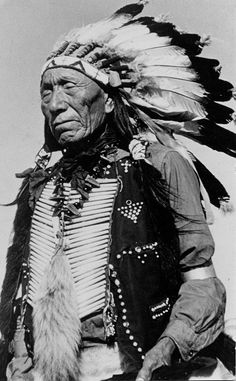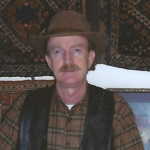August 27, 2020 @ 1:00 pm - 2:00 pm
Join us, in person, at The Brinton on August 27 at 7 PM for a presentation by Joseph Henry on Black Elk, an Ogalala Lakota healer and holy man.
At a time when the native peoples were being exterminated and forced to assimilate and acculturate, Black Elk emerged with a religious philosophy that encompassed all of humankind. His philosophy went far beyond the healing of tribal members by seeing one human race and the similarities, rather than the differences, between Native beliefs and Christianity.
Tickets to attend this free lecture are required as seating is limited!

At a time of war with the US Military, the wide acceptance of Manifest Destiny and the implementation of the Grant Peace Policy there emerged on the Northern Plains, Black Elk, healer and holy man of the Oglala Lakota. Black Elk had a vision that encompassed all of humanity under the Tree of Life including those who had participated in the attempted extinction of Natives and all things Native.
The military campaigns against the Indians, 1840-1890, has been well documented with the Northern Plains Tribes providing the most resistance.
Manifest Destiny was the theory that the white man was to conquer the lands from the Atlantic to the Pacific bringing salvation and civilization to the savages of the interior. In more recent years many have questioned who were the real savages?
The Grant Peace Policy was the brainchild of the Quakers in 1869 to bring education, in this new environment, to the Indians. However, the funding made available by the US government had requirements that included: Native language suppression, no long hair, and no cultural activities.
Then, in this era of extermination, racist philosophies, and acculturation and assimilation came this Native visionary and healer whose religious philosophy encompassed all of mankind, Natives and non-Natives alike, under the Tree of Life. The philosophy he brought went far beyond the healing of tribal members by seeing one human race and the similarities rather than differences between Native beliefs and Christianity.
Joseph Henry
 Joseph Henry is currently semi-retired working with the Anderson School of Management at UCLA mentoring new Head Start Directors. He spent 25 years as the Executive Director of the Shoshone and Arapaho (ES&NA) Birth-Five Head Start program on the Wind River Indian Reservation in Wyoming. He completed a doctorate in Child and Youth Studies at Nova Southeastern University, NSU, in August 2007. The dissertation topic was Parent Involvement and its academic impact. He has an MA in American History with a concentration on the American West from the University of Wisconsin-Milwaukee with a thesis on St. Stephens Mission on the Wind River Indian Reservation 1984. His undergraduate degree was also in American History with a thesis on Woodrow Wilson and Racism. He received a certificate in Early Childhood Management from the University of Wyoming in 2004. He taught North American Native, Northern Arapaho, and US History at the Wind River Tribal College from 2009-2017. He was born in County Sligo, Ireland, and is a naturalized citizen of the United States. His maternal grandfather, John Kilroy, was naturalized at Silver Bow, Montana, in 1898. Joseph resides in Lander, Wyoming.
Joseph Henry is currently semi-retired working with the Anderson School of Management at UCLA mentoring new Head Start Directors. He spent 25 years as the Executive Director of the Shoshone and Arapaho (ES&NA) Birth-Five Head Start program on the Wind River Indian Reservation in Wyoming. He completed a doctorate in Child and Youth Studies at Nova Southeastern University, NSU, in August 2007. The dissertation topic was Parent Involvement and its academic impact. He has an MA in American History with a concentration on the American West from the University of Wisconsin-Milwaukee with a thesis on St. Stephens Mission on the Wind River Indian Reservation 1984. His undergraduate degree was also in American History with a thesis on Woodrow Wilson and Racism. He received a certificate in Early Childhood Management from the University of Wyoming in 2004. He taught North American Native, Northern Arapaho, and US History at the Wind River Tribal College from 2009-2017. He was born in County Sligo, Ireland, and is a naturalized citizen of the United States. His maternal grandfather, John Kilroy, was naturalized at Silver Bow, Montana, in 1898. Joseph resides in Lander, Wyoming.

